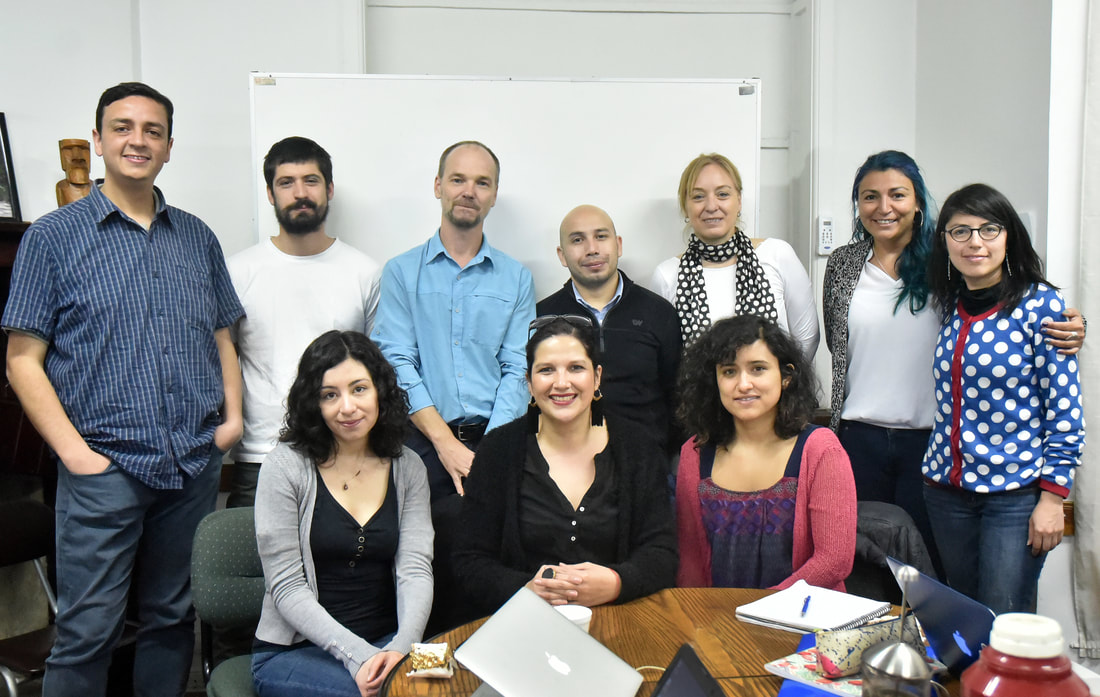
In October, 2018 I spent a week in Santiago, Chile working with a group of doctoral students from the Universidad Diego Portales and Universidad Alberto Hurtado joint doctoral program. In Chile, they are receiving their first significant waves of non-Spanish-speaking students, primarily comprised of Kreyol-speaking Haitian immigrants. I worked with them, with critical awareness of my own ignorance relative to Kreyol and Haiti, around principles of bilingualism and second language acquisition. I argued that while I could provide some theoretical and empirical insights from my own work, there must be local work that is collaborative and cognizant of the political dimensions of teaching and learning in immigration and bilingual contexts. I gave a talk to these ends, which can be viewed here. Here is the group of outstanding students with whom I was able to work for the week.
It was very gratifying and humbling to be part of the work there. The US experience with immigration, xenophobia, race, and language echoes in Chile, where US imperialism took brutal form with the suspicious death of Salvador Allende on September 11, 1973 and the Pinochet dictatorship that followed. These overlaps are profound, and the case of Haitian immigration in Chile something that deserves advocacy and documentation.
It was very gratifying and humbling to be part of the work there. The US experience with immigration, xenophobia, race, and language echoes in Chile, where US imperialism took brutal form with the suspicious death of Salvador Allende on September 11, 1973 and the Pinochet dictatorship that followed. These overlaps are profound, and the case of Haitian immigration in Chile something that deserves advocacy and documentation.
 RSS Feed
RSS Feed